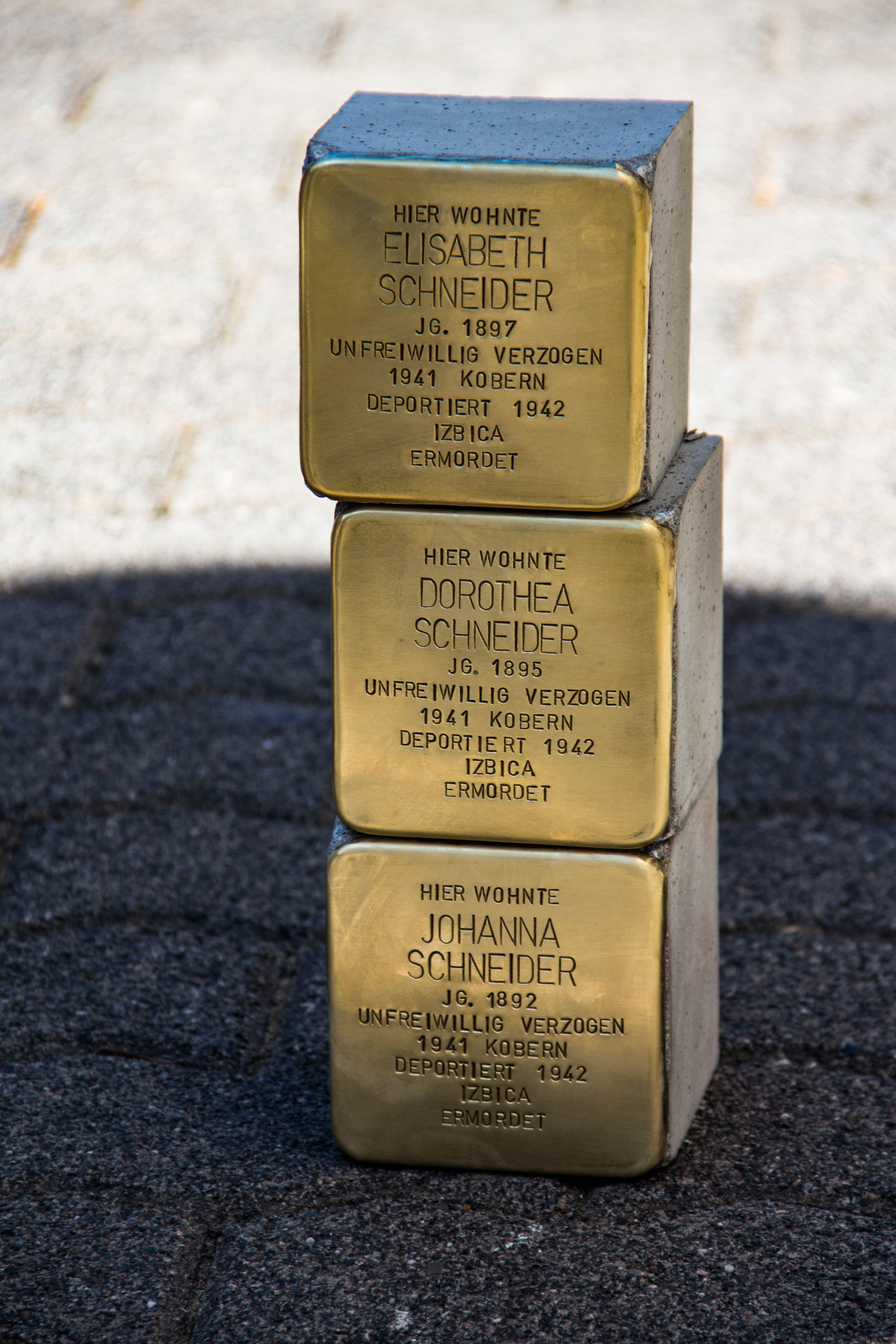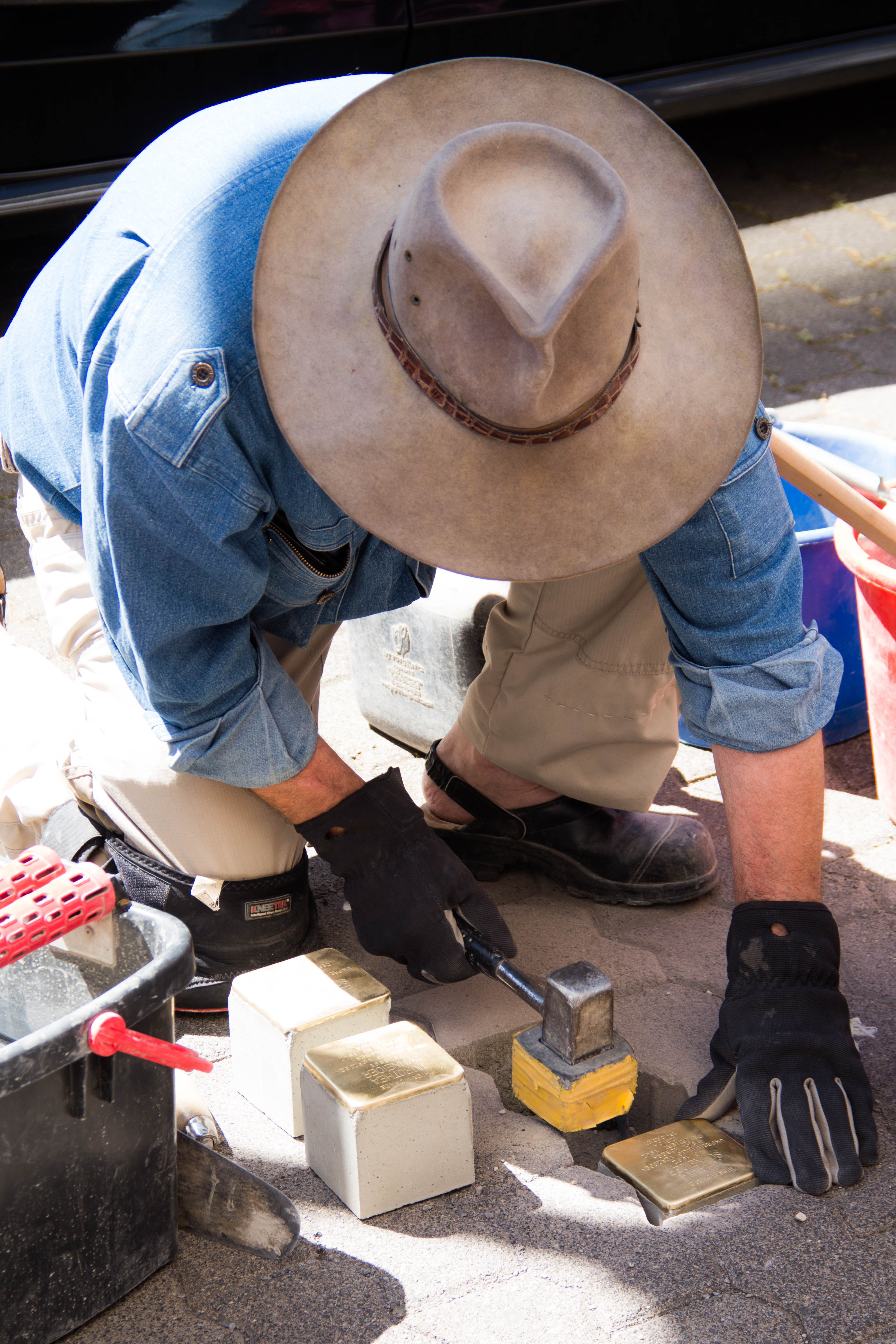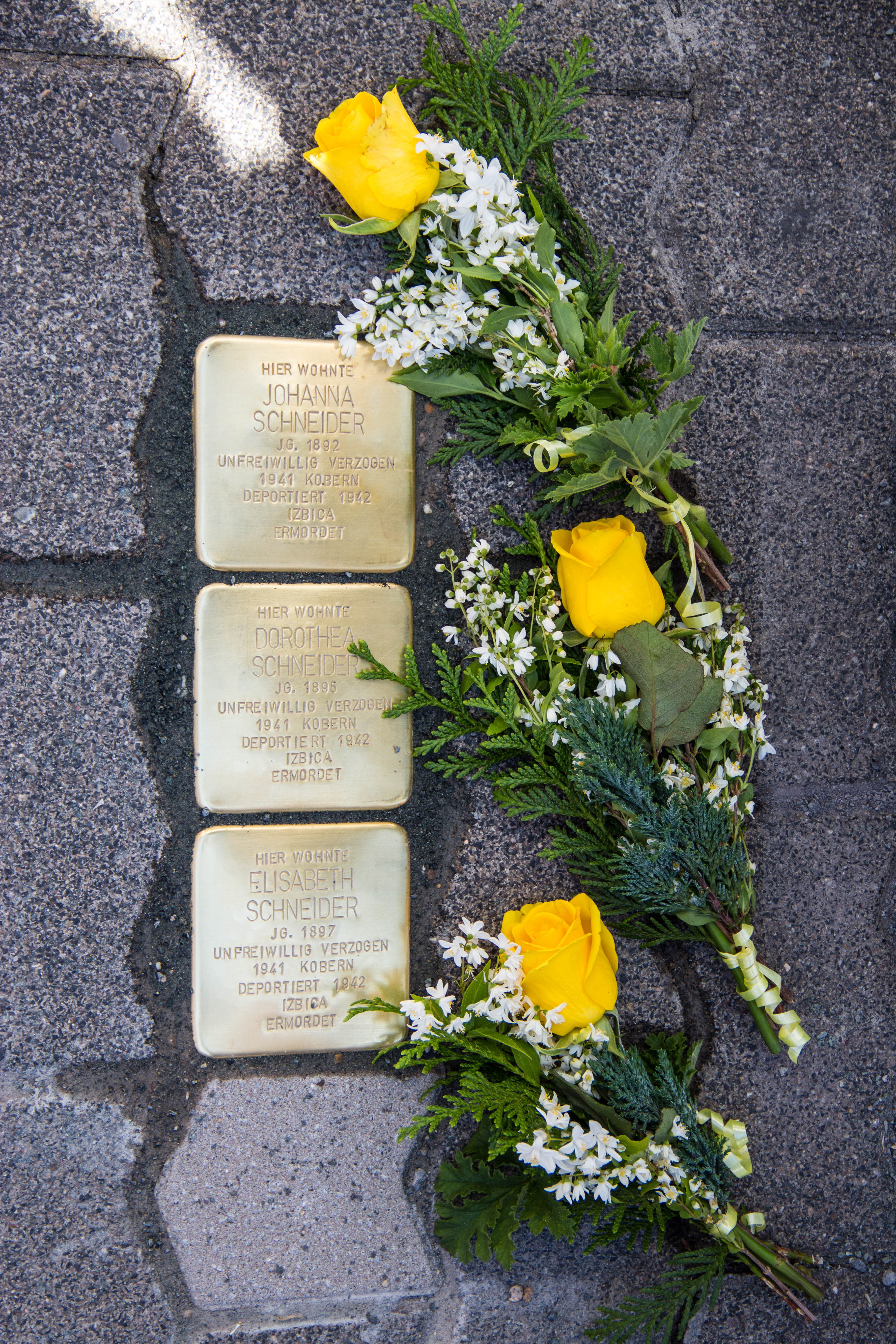My heart-felt thanks to all of you who have come to witness the laying of Stolpersteine for my three aunts.
Perhaps the year was 1937. I would have been five years old when I walked through the front door of the grand house that stood here at Markenbildchenweg 30. I had come to visit my aunts.
My mother was the eldest of four sisters, daughters of the Schneider family, Weinhändler, originally from Heddisheim, now Guldenthal, near Bad Kreuznach.
By 1937 my mother had settled in the Eifel region, but her sisters made their home here on this street in Koblenz.
I only have faint memories of my three aunts, their appearance or personalities. Aunt Johanna was a business woman, strong and efficient. Aunt Dorothea, or Dora, cared for the house. I see her wearing an apron— kindly, quiet and timid. The youngest aunt, Elisabeth, I remember having curly black hair and laughing eyes. I have no photographs. They were single, all three, and I was the only child in the family—loved intensely.
For many years, it was too painful for me to even ask the question, “What happened to my aunts, Johanna, Dora and Elisabeth?”
It was only after I experienced the healing of my wounded history that I received the courage to search out their story. The facts are few. On May 22, 1942, they left Koblenz from the Güterbahnhof Lützei on the first transport carrying around 300 Koblenz Jews to the east.
The three of them were among the 11-15,000 Jews who were ultimately brought to Izbica, a small shetl in Poland.
My aunts died in the summer of 1942. Did they die by gassing in the nearby camps, Belzec or Sobibor? Or from typhoid, shooting or starvation in Izbica?
About a year ago, George and I were in Koblenz. We walked with a large group of local citizens, following the route these first deportees took, under guard, on their way to the Güterbahnhof Lutzei.
In the evening darkness we stood together at the station, holding lighted candles and yellow stars. We listened as all the names, ages and addresses were read by students.
And now, today, we are together here, honoring Johanna, Dora and Elisabeth, remembering them with Stolpersteine.
I am deeply thankful to Gunter Demnig, who has already laid so many Stolpersteine throughout Europe. And from Koblenz, especially Wolfgang Hüllstrung and his team, and all of you gathered here as witnesses. Some of you have travelled hundreds of kilometers to be here.
I would like to close with the Aaronic blessing. The role God intended for Jews was to bless all peoples. I pray this prayer today, asking God’s blessing on all of us gathered here, and on the city of Koblenz:
The Lord bless you and keep you.
The Lord make his face to shine upon you, and be gracious to you.
The Lord lift up his countenance upon you
And give you peace.



Thank You for sharing
These last few days I have been meditating and memorizing Luke 4:18-20. These verses were fulfilled in the three year ministry of Christ and that day in the synagogue. But in another sense as His body He wants to fulfill them in us and through us in a physical and spiritual sense in our present time, if I am not mistaken.
I have been asking Him to free me more and more, as I grow in Him, from my spiritual, mental and emotional poverty. To free me from my mental and emotional captivity. To set me free from my blindness to His will and His ways for my life. To set me free from my emotional oppression which is so deep. To realize that today is the favorable year of the Lord for me and those who know and don’t know Him. To explore the depths of these realities.
The Spirit of the Lord is upon me (you). Because He has anointed me (you) to preach the gospel to the poor. He has sent me (you) to proclaim release to the captives, and recovery of sight to the blind, To set free those who are oppressed, To proclaim the favorable year of the Lord. …
I have a sense that this is what the Father, Son and Holy Spirit is doing and has been doing through you both (Hanna and George).
Thank You, that as you walk through these things we can learn and follow your example. Blessings, I am praying for you both on your journey and in the ministry and blessing you are to all of us! Blessings
Hanna, thank you for the courage it took to look into the face of your history and in doing so, you and thousands have been set free! I love the Amplified version of EPHESIANS 5:13 AMP …”But all things become visible when they are exposed by the light [of God’s precepts], for it is light that makes everything visible.” … The pure transparency of your life is a study in peace released in God’s Grace! I love you my sister…
Dear Hanna, I am so glad that the Lord is healing your wounds which you received by the lost of your family in the Holocaust. I regret very much that I was not able to join you in Koblenz. I will be in Koblenz in September so I hope I am able to have a look to the Stolpersteine laid in honor of your aunts.
With love
Verena